Product Strategy Should be Messy
FYI if you missed last week's webinar on 'The Product Manager Career Path' here's the recording.
Small plug: I recently launched the Product Mentorship on Product Pathways 🚀 and I'm offering $200 off until the 1st of March (use code: MENTOR200)
Here’s a LinkedIn post with more details but you can also watch the video/read the website.
Coming up with a product strategy should be messy.
It's not some clean fill in the box activity.
Instead it's often big messy Miro boards, multiple white boarding sessions, synthesising loads of data, and documents plastered with comments.
And a lot of back-and-forth.
It's important to not mistake a neat Product Strategy document at the end as the thing.
I was reminded of this recently when a product leader I've been coaching was frustrated by a 2 day leadership offsite.
They spend the majority of the two days discussing strategy but as she remarked to me: "I feel like we're no closer to a strategy than when we started!"
Perhaps you've been there too. Frustrated by the endless conversations, lots of inputs, data, but still no clear path forward or decisions.
It's normal to feel frustrated and like you've been spinning wheels in this scenario.
But the two days were not a waste!
They were simply stuck in the 'Groan Zone'.
Diamond of Participation by Sam Kaner et al.
In the book the Facilitator's Guide to Participatory Decision-Making, Sam Kaner and his co-authors described different stages in which teams move through in order to make a collaborative decision.
They called this 'The Diamond of Participatory Decision-Making' - yes a mouth full!
What the product leader and her peers did in the two days was work their way through the first diamond.
Whilst it may not have felt like progress, it was.
They got a lot of the information, different perspectives, constraints and a whole bunch of other data on the table. I'm sure they left those two days with a much better understanding of what's happening in the business.
Adeptly name, the 'Groan Zone' is exactly how it feels.
You have a plethora of information in front of you. The challenge now is shifting through it and converging.
Not as easy as it sounds. Especially when it involves big, challenging and ambiguous decisions like strategy demands!
Hope is NOT a Strategy
“Strategy is about making choices, trade offs; it’s about deliberately choosing to be different” - Michael Porter
A strategy is a set of coherent choices. Typically about how you're going to realise your vision or overcome some challenge.
Sure you could be frustrated by such a long process, throw in the towel and say, "let's just make some choices and be done with it" but there are a few problems with that.
A good strategy needs inputs.
Without the necessary inputs and depth of reasoning on why you arrived at those choices, your strategy will not be defensible.
This means that any new idea, information or a vocal executive could derail your strategy.
I'm sure you've been there. A new direction every couple of months (dare I say weeks 😱).
The second danger with jumping to the end state (choices) and overlooking the process is that your choices end up being glorified guesses.
And I'm sorry to tell you but hope is not a strategy!
Now some of you might argue "But that's what strategy is! It's high level. The execution details are for the team to work out."
The problem with this thinking is the assumption that strategy and execution are mutually exclusive.
As Richard Rumelt says in his book 'Good Strategy Bad Strategy';
“Executive who complain about "execution" problems have usually confused strategy with goal setting.”
Another reason why OKRs ≠ Strategy!
Your strategy needs a honest appreciation and reflection on your business, capabilities, strengths and weaknesses.
If you're not set up to realise your strategy then you need a new strategy!
Now of course, some capabilities can be built or hired but unless you're also taking that into account and putting deliberate effort there it's a pipe dream!
Here's a real example.
A friend of mine recently joined a startup that had "hire the best talent" in their company strategy.
Now besides a whole bunch of obvious comments about how a statement like that is far from a strategy, let's entertain it for a second.
They were a small startup <20 people and they were doing 7 figures in revenue per year.
As my friend pointed out, they couldn't possibly "hire the best talent" because they weren't able to pay top salaries.
Sure there were other perks they could offer but they better be great offers when people are asking double what they could realistically pay.
Pipe dream!
So whilst yes you can theoretically hire people or upskill there's still the honest appreciation of your current state.
Is that even feasible?
“If you can’t identify a set of Capabilities and Management Systems that you currently have, or can reasonably build, to make the Where to Play and How to Win choice come to fruition, it is a fantasy, not a strategy.” - Roger L Martin
This all takes time.
It's not easy and it requires shifting through a lot of data, research, analysis, making assumptions, building hypotheses and models that will help guide your decision making.
Strategy is hard and messy.
I'm working through this right now with a client. So far we've spent 5+ days as a product management team together working through this. And whilst we've built a lot of shared understanding and direction, we're still far from having a cohesive and defensible strategy.
(I also had to share the Diamond of Participation with them as we finished our first two days together also in the groan zone!!)
Perhaps I'll leave it on this quote from Richard Rumelt;
“A great deal of strategy is spent trying to work out what’s going on”
If you're not spending the majority of the time when setting a product strategy trying to work out what's happening (gathering inputs, research, synthesising, developing hypotheses and shaping choices) then your strategy is just wishful thinking.
Great Strategies need data and inputs.
Making sense of those inputs takes time.
Make the space for that.
If that means blocking out your diary or blocking out a week for the team and stakeholders to be together, then do it!
Remember hope is not a strategy and you can't leave everyone hanging out in the groan zone!
You need to set more time aside and work your way through it.
Bonus: Product Strategy Resources
If you need some additional guidance on building a Product Strategy I have a workshop board in miro that's designed to help facilitate your thinking.
Note it's not a checklist!
You'll realise that you can't just tick the steps off you need to do the work (eg research, gathering and synthesising) but it provides some guardrails and prompts to help you along.
I also have a Product Strategy Document template and One-Pager for packaging up your final strategy and communicating it.
But remember, don't mistake these for the thing.
They're the output, not the process of getting there!
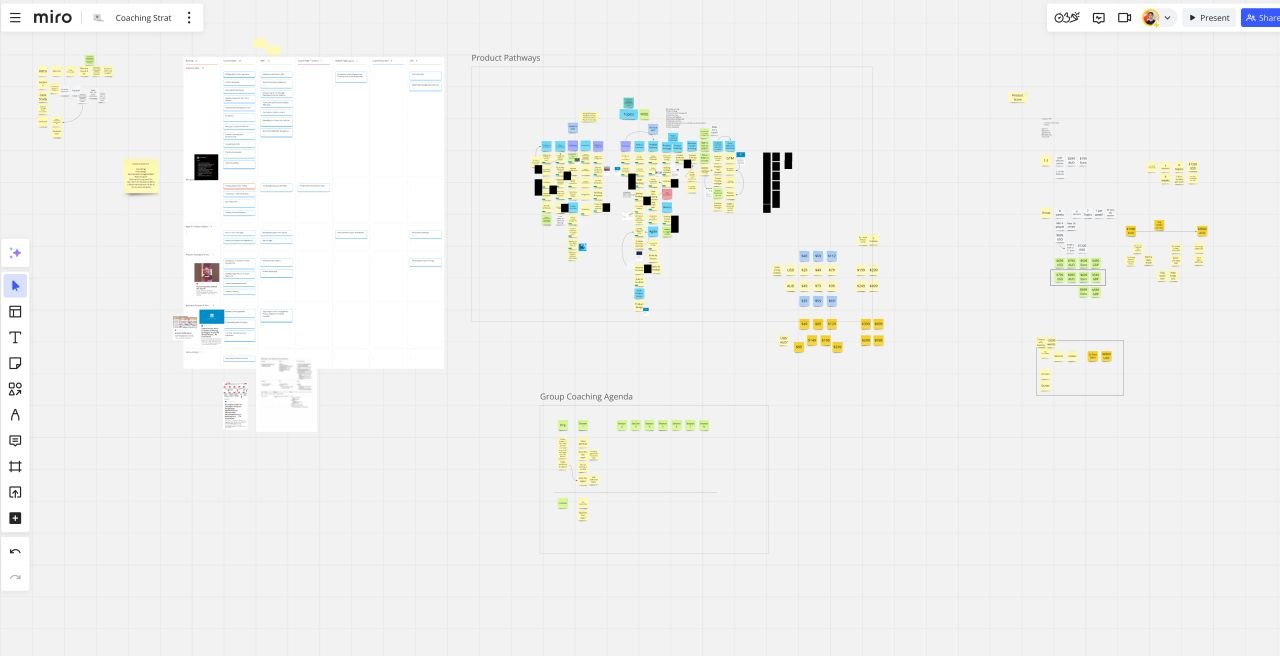

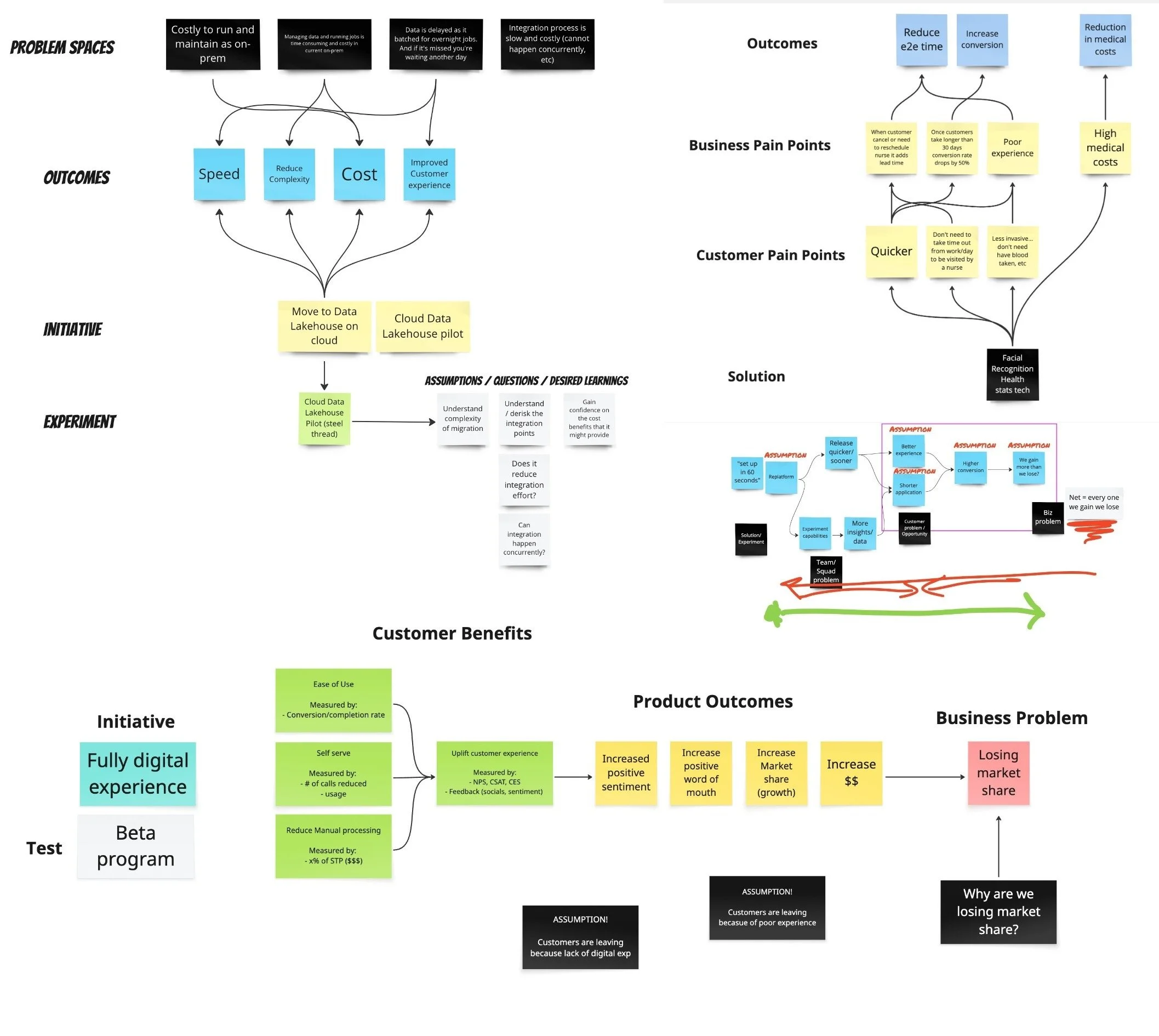





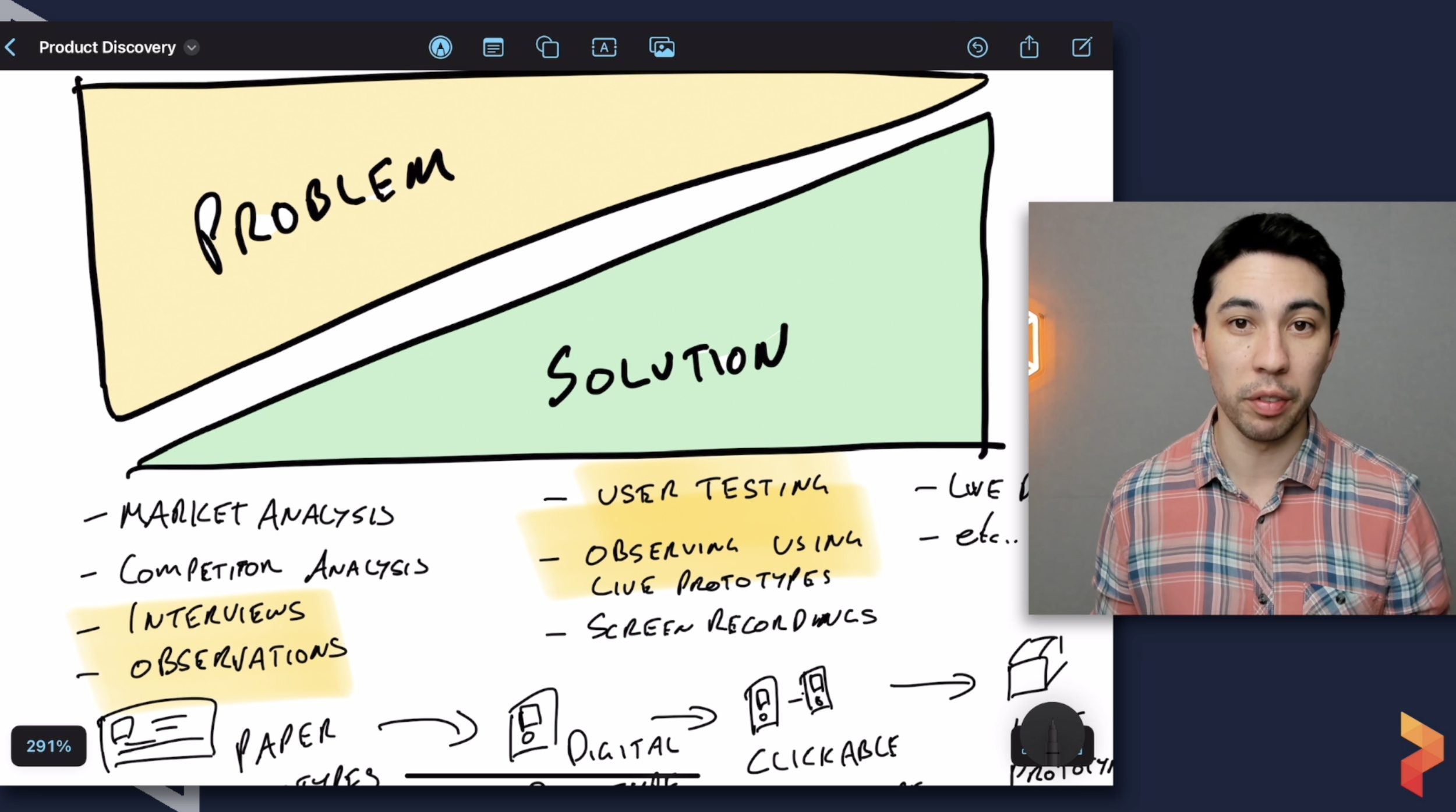
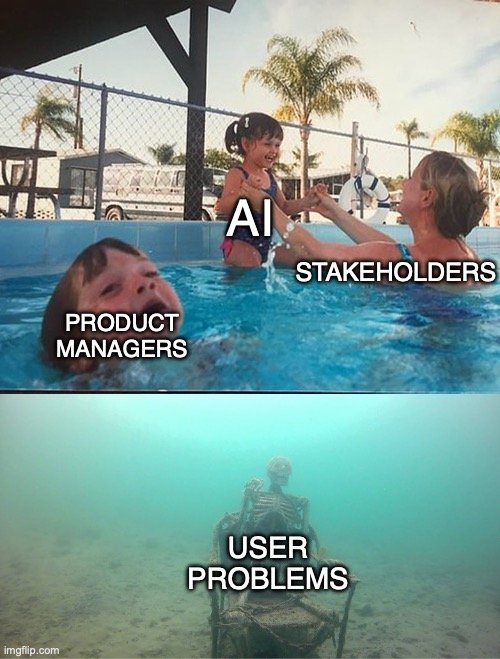




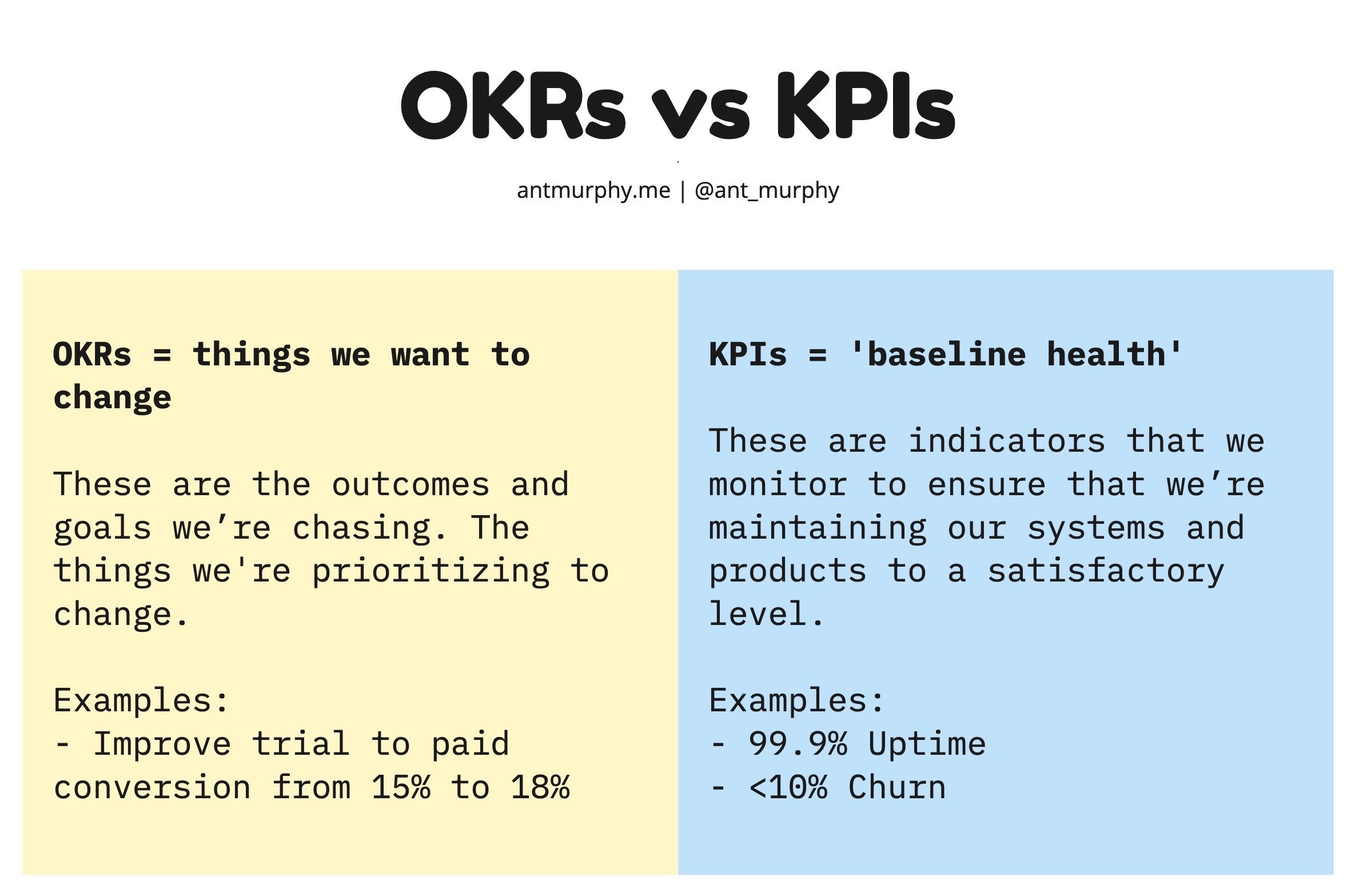
Your OKRs don’t live in a vacuum.
Yet this is exactly how I see many organizations treat their OKRs.
They jump on the bandwagon and create OKRs void of any context.
Here’s what I see all the time…